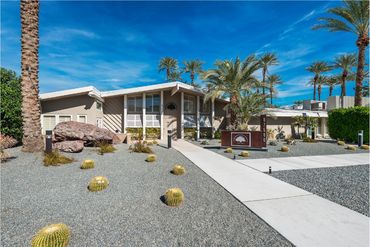
Drug & Alcohol Rehab Centers in Washington
Finding addiction treatment in Washington can seem challenging, but being informed on various treatment and payment options available can help make the process more manageable. Addiction is a complex disease that affects individuals and their loved ones in various ways, and seeking professional help is often necessary to overcome it. With a variety of drug and alcohol rehabs in Washington, it’s crucial to understand what each one offers, how they differ from one another, and which one is the best fit for your needs. Ultimately, finding the right addiction treatment is essential for a successful recovery journey, and being informed about your options can make all the difference.
Treatment Centers in Washington
Open to Travel? Check out Top-Rated Options
All Treatment Centers in Washington
Are You Covered For Treatment?
- Seattle Rehabs
- Spokane Rehabs
- Tacoma Rehabs
- Vancouver Rehabs
- Yakima Rehabs
- Olympia Rehabs
- Bellevue Rehabs
- Everett Rehabs
- Bellingham Rehabs
- Kent Rehabs
Rehab Insurance Coverage in Washington
Rehab Centers in Washington
Information About Rehab in Washington
Latest Reviews
Latest Reviews of Rehabs in Washington
United Northwest Recovery Ctr Inc
this information is incorrect it is not a detox center but an outpatient treatment center with great people that takes insurance but no Medicaid
BAART Behavioral Health Services Inc
This place is great! They always get my food out fast, and when I order my chicken extra crispy, that's how they cook it! Everyone at Baart and all they do is appreciated more than I can express. Thankyou.
We Care Daily Clinics
We care has always gone out of their way to 2help me the best that they can the people that work there are awesome I have not been to a better methadone clinic anywhere else in the state of Washington the peer support there is awesome
About Washington
Washington is located in the Pacific Northwest region of the United States. With a population of over 7.7 million people,1 it is the 13th most populous state in the country. Known for its diverse geography, Washington boasts everything from lush rainforests and towering mountain ranges to arid deserts and rugged coastlines. The state is home to many iconic landmarks, including Mount Rainier, the Space Needle, and the Columbia River Gorge.
Culturally, Washington is a melting pot of various ethnicities, with a significant population of Asian, Hispanic, and African American residents. The state is known for its thriving arts scene, including music, theater, and visual arts. Seattle, the state’s largest city, is often considered the cultural hub of the Pacific Northwest. Washington is also known for its tech industry, with major companies such as Microsoft, Amazon, and Boeing headquartered in the state. Overall, Washington is a diverse and dynamic state with much to offer residents and visitors alike.
Addiction in Washington
Addiction is a significant issue in Washington, as it is in many other states across the country. Between 2017 and 2019, the average yearly prevalence of substance use disorder in Washington was 8.6%, or approximately 542,000 people. This rate was higher than the national average of 7.4%.2
Opioids, particularly fentanyl, are a growing concern in the state. According to the University of Washington’s Addictions, Drug and Alcohol Institute, the prominence of fentanyl has risen dramatically over the past few years. In 2020, it accounted for less than 9% of crime lab submissions, but by 2022, that figure had surged to over 50%.3
Overdose fatalities have also increased in Washington. In 2020, 1,733 overdose deaths were reported and by 2021, this number grew to 2,264.4
Addiction Treatment in Washington
There are various levels of addiction treatment available in Washington to help you overcome your substance use disorders. These include detoxification, inpatient treatment, and outpatient treatment.
Detoxification typically involves a medically supervised process of managing withdrawal symptoms. Inpatient treatment provides round-the-clock care in a residential setting, offering various therapies and specialized programs tailored to each patient’s unique needs. Outpatient treatment involves regular appointments with healthcare providers, including group therapy and individual counseling.
Additionally, Washington offers various specialized treatment programs, including dual diagnosis treatment, LGBTQ+ friendly programs, and faith-based programs, to name a few.
Luxury rehabs offer a high-end treatment experience with amenities such as private rooms and gourmet meals. These programs typically have a higher cost and are often not covered by insurance. Private rehabs offer a more affordable option for individuals who don’t have insurance or are unable to cover the costs of luxury rehab.
When looking for addiction treatment in Washington, you can use our online “Find a Rehab Center” tool, which allows you to search for local rehab options based on your location, needs, and preferences.
How Much Does Rehab Cost?
Most insurance plans cover addiction treatment to some degree. This means that you can use your insurance to help cover the cost of treatment, potentially making it more affordable. However, the exact amount of coverage can vary depending on your insurance plan, so it’s important to contact the insurance provider to understand how treatment will be covered.
If you are uninsured, state-funded treatment centers may be an option. These centers are typically funded by the state government or other public sources and offer addiction treatment services at little to no cost to individuals who meet eligibility criteria. The availability of state-funded treatment programs can vary depending on the location, and there may be waiting lists or other requirements for accessing services.
In-Network Insurance Options
Length of Stay in Rehab
When it comes to addiction treatment, there are various options for the length of stay, depending on your needs and the severity of the addiction. The most common durations for addiction treatment are 30 days, 60 days, and 90 days.
If you suffer from a more severe addiction or co-occurring mental health conditions, longer-term programs may be necessary. Long-term rehab programs typically last between 6 months to 2 years, depending on your treatment needs and the specific facility or program you are enrolled in. These programs provide intensive treatment and support over a more extended period, allowing you to address the root causes ofyour addiction and develop the skills needed for long-term recovery.
Recovery Starts Today
Finding addiction treatment that is right for you is crucial in giving yourself the best chance for lifelong recovery. With the variety of treatment options available in Washington, you are sure to find the individualized care you require. It’s important to do research, consult with healthcare providers, and seek recommendations to find the program that meets your individual needs and goals. Remember that recovery is a journey, and finding the right treatment program is an essential step in starting that journey.
Sources:
- United States Census Bureau. QuickFacts-Washington. July 1, 2022.
- Substance Abuse and Mental Health Services Administration. Behavioral Health Barometer: Washington, Volume 6.
- University of Washington. Addictions, Drug and Alcohol Institute. Drug Trends Across Washington: Crime Lab Data. April 4, 2023.
- Centers for Disease Control and Prevention. Drug Overdose Mortality by State.
















